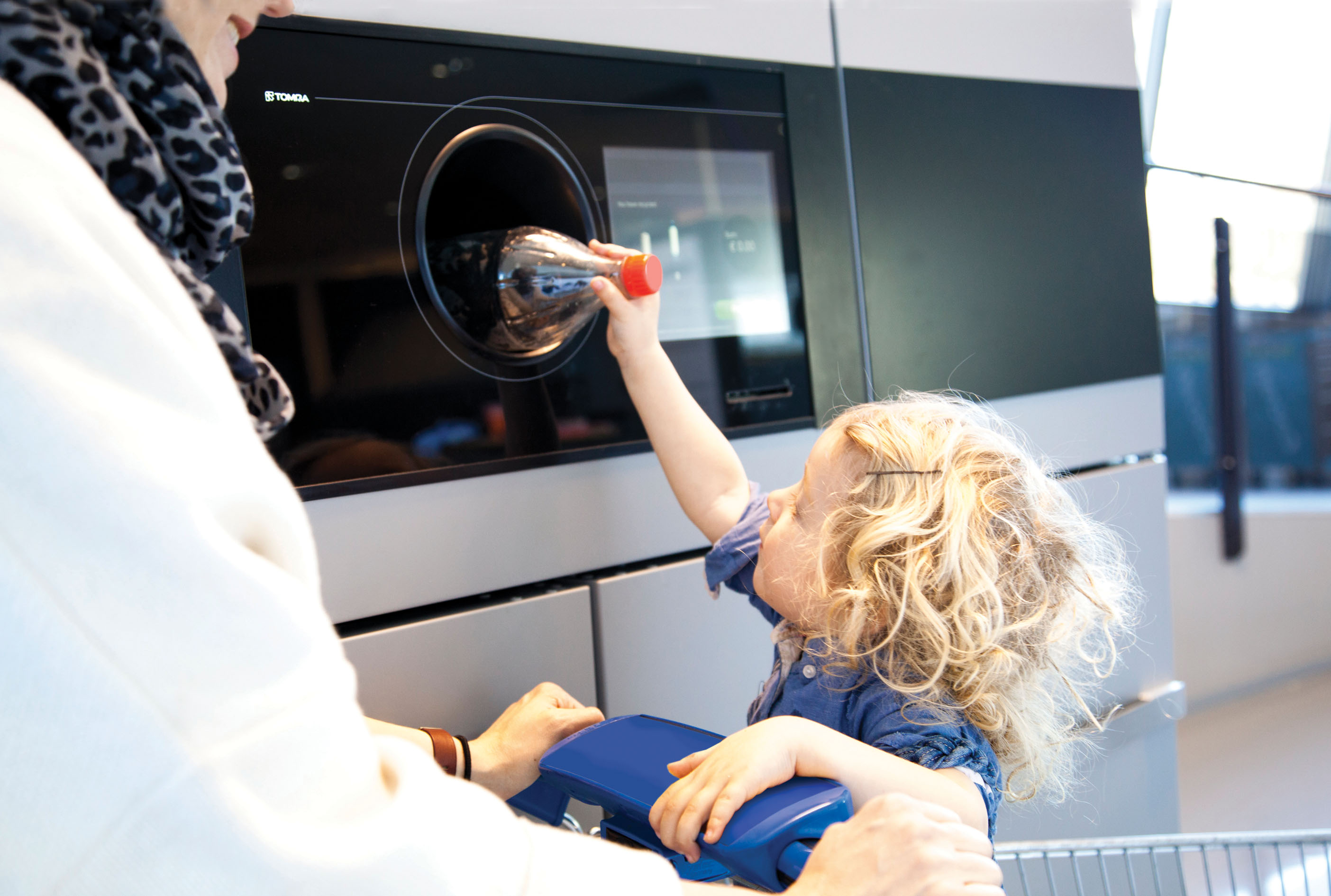

What part does TOMRA play?
Every year, TOMRA's reverse vending solutions capture more than 46 billion drink containers across the globe. That might sound like a lot, but it’s actually less than 3% of what’s sold annually! By helping you, society's recycling heroes, enjoy a faster, cleaner, and more convenient recycling experience, we hope to bring the remaining 97% into the loop.

What puts the "Clean" in Clean Loop Recycling?
Beverage containers recycled through a reverse vending machine stay clean enough to keep their "food grade" status meaning they can be recycled into new beverage containers. Containers that come into contact with other household waste can be contaminated, so are often downcycled into different products.
FIND OUT MORE
With a reverse vending machine, you get to collect the valuable resources before they get mixed up with other contaminants. If you mix them up with household or industrial waste, you not only have to sort them, you have to cleanse them too.


When it comes to Clean Loop Recycling, Norway is leading the way!
Regarded as the world role model for beverage container recovery and recycling, Norway’s deposit return system is one of the most efficient in the world. With more than 92% of containers returned to reverse vending machines and around 6% collected through alternative channels, less than 1% of all beverage containers in Norway are littered!
Frequently asked questions
-

 It's an easy, fast, and convenient way to recycle. If you want to know how to use a reverse vending machine, you've come to the right place!
It's an easy, fast, and convenient way to recycle. If you want to know how to use a reverse vending machine, you've come to the right place! -


Where do my drinks containers go?
What happens after you put a bottle in a reverse vending machine? That's a great question. It depends where you are and what kind of recycling facilities are available. -


What's DRS and how can it help?
Deposit return systems provide a simple and smart solution to cutting down waste and reducing plastic pollution. -


How can deposit return systems reduce carbon emissions?
Drinks containers made from recycled materials have a smaller carbon footprint than those made from scratch. -
/tcs-pollution-b-low.jpg?hash=c8c72025f1d4e68dd52ebf3f8bf1d6de99e254a37cd5a1723e98c604ead1e9b9&w=710&h=250&q=75&fit=crop&format=webp)
/tcs-pollution-b-low.jpg?hash=ca5a01517f5ce1812516440aadfe3c77f17057ed4957633ac4d5b5afc79e7bba&w=800&h=280&q=75&fit=crop&format=webp)
-


It's the key to tackling the plastic pollution crisis at scale
The UN Treaty on Plastic Pollution provides a unique opportunity to bring about a much-needed transformation in the way we manage and recycle plastic waste.

What can you do?
There are plenty of ways for you to make a difference. Being a responsible recycler and making recycling part of your regular habits, supporting effective waste management policies in your local area, and talking about the issue with family and friends.
SAY NO TO PLASTICS IN NATURE

DEPOSIT HEROES
The Red Cross's recycling lottery becomes pillar of support for humanitarian work
The lottery brings together the excitement of a game, protecting the environment, and supporting a charity making an impact.
FIND OUT MORE

DEposit heroes
10-cent Tom contributes to climate action by collecting used beverage containers
Meet the entrepreneur using bottle return to build his own business.
DISCOVER TOM'S STORY

DEPOSIT HEROES
Gazton the recycling dog collects 10,000 Swedish crowns in container deposit refunds
Not all heroes walk on two legs.
FETCH!










